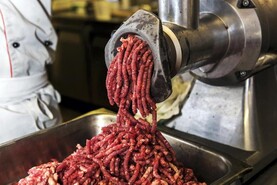The Oxfam briefing paper on the sham of net zero carbon commitments by large corporations triggers a debate on land use and priority of agriculture that needs to take place.
Yes, the discussion has been dominated in recent years about the need to curb emissions, but the real focus is on how emissions from wider society can be mitigated through land use, in particular the planting of trees.
The Oxfam paper calls this out as basically a cop-out from the tough work of tackling the reduction of emissions as opposed to buying an off the shelf forestry solution.
What Oxfam is saying is that poorer communities in the world risk hunger if their land is taken for the purpose of emissions mitigation by the developed world.
Affordability of food
Of course it would have marginal impact on the EU where spend on food is now below 10% of household budgets. It wasn’t always this way – the reason that agriculture became the first common policy of the then six member European Economic Community in 1962 was to address the critical need for a stable affordable food supply.
Food scarcity at the end of World War II in 1945 was a recent memory at that point and rationing continued in many parts of Europe including Britain and Ireland until well into the 1950s.
CAP
The CAP has evolved as the supply side of food in Europe improved to the point of abundance to the point where is now is much more environment and emissions focused than food focused.
With the ambition to restrict the use of tools that maximise production, encouragement of organic farming and restoration of wetlands, the EU is encouraging less focus on food. This can be carried by EU consumers and any deficit in supply outsourced (with environmental consequences) to elsewhere in the world.
Impact assessment
There has to be irony in the blunt impact assessment carried out by the USDA on the EU Farm to Fork strategy aligning with the Oxfam paper on food security.
The USDA concluded that global movement to farm to fork production standards would dramatically increase the cost of food by 89% and in the process drive a further 185m people in the poorer parts of the world into food poverty.
The Oxfam paper highlights that the crusade for net zero by offsetting emissions will put such a strain on land use that it will have the same effect.






 This is a subscriber-only article
This is a subscriber-only article










SHARING OPTIONS: